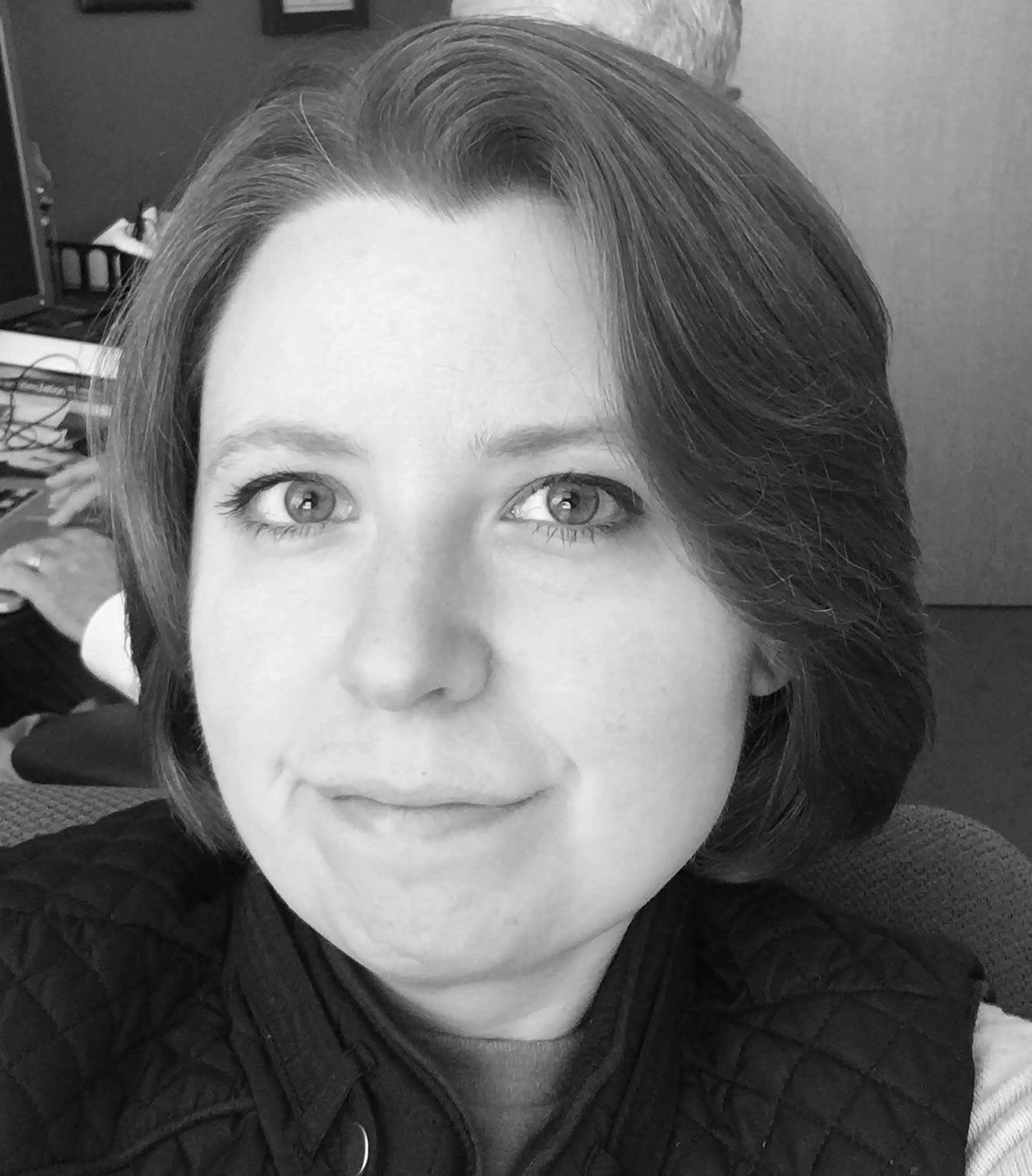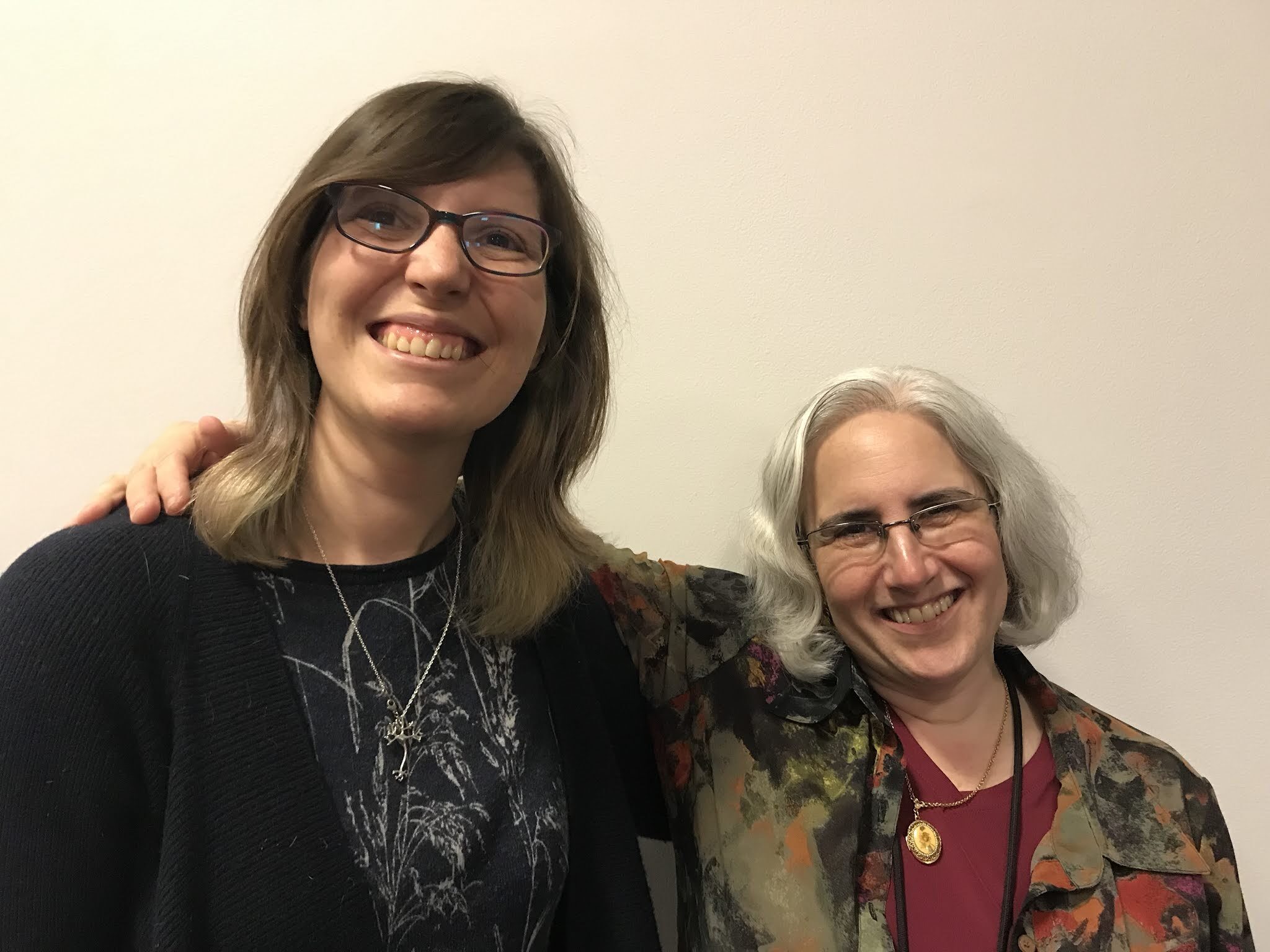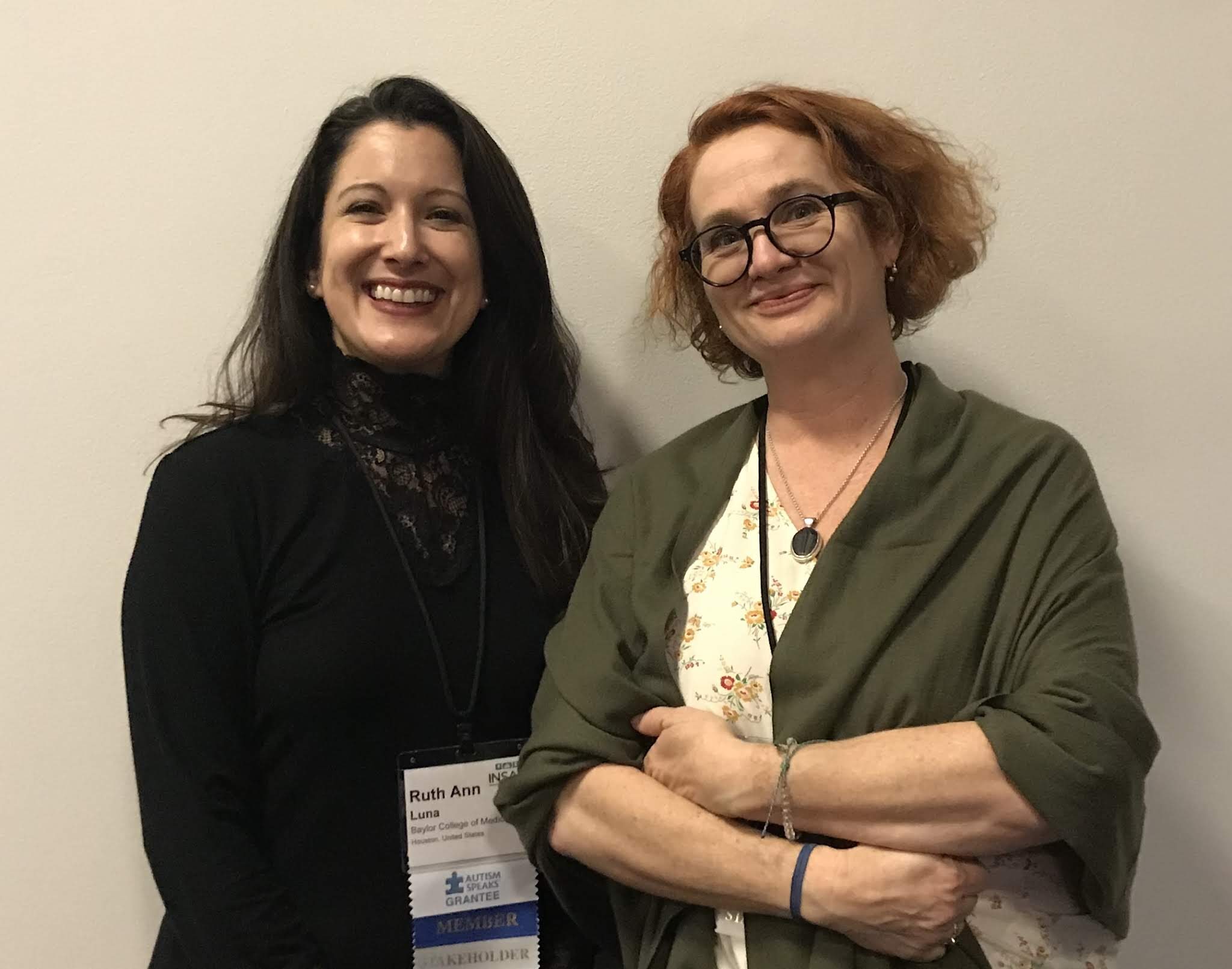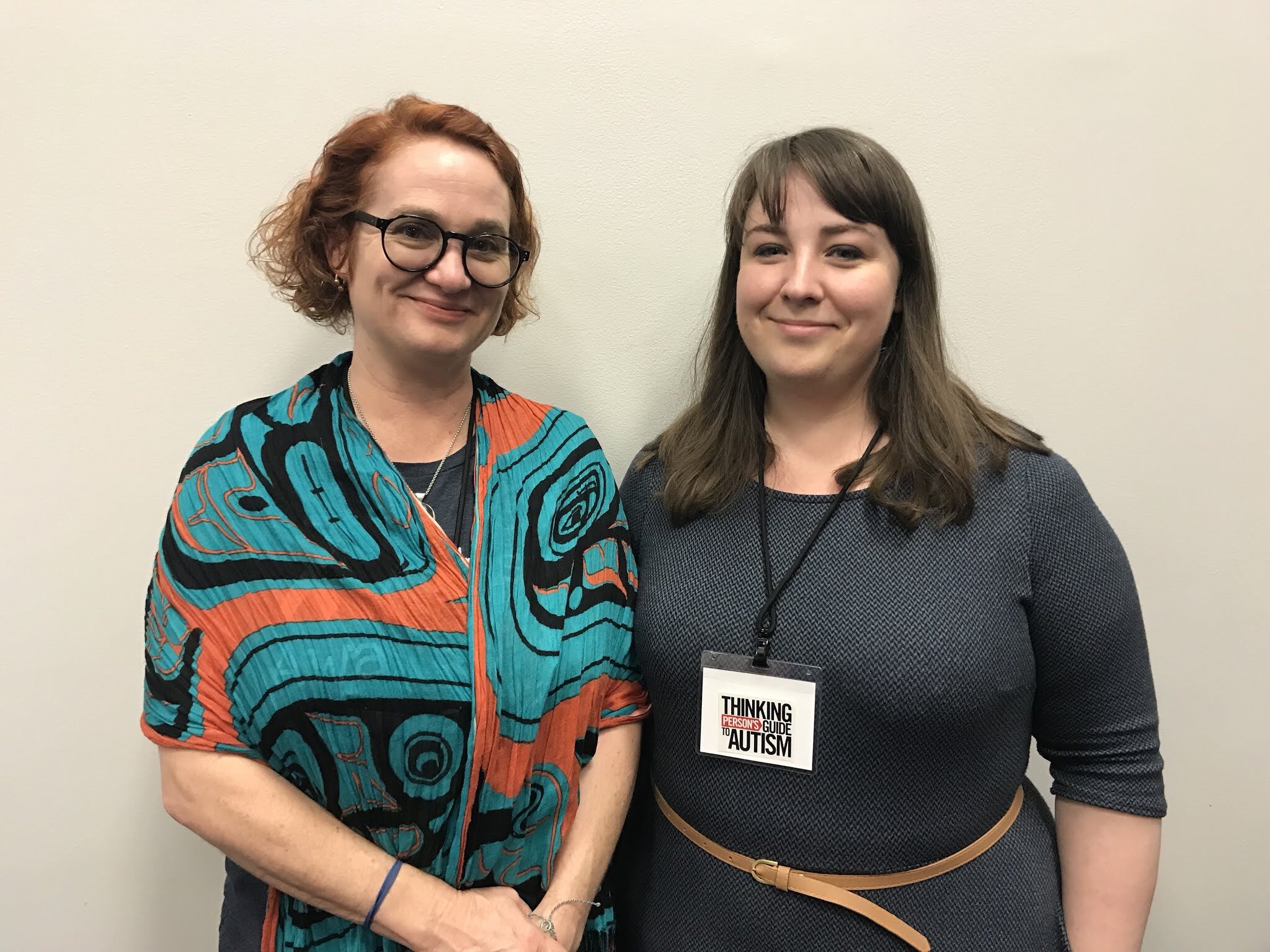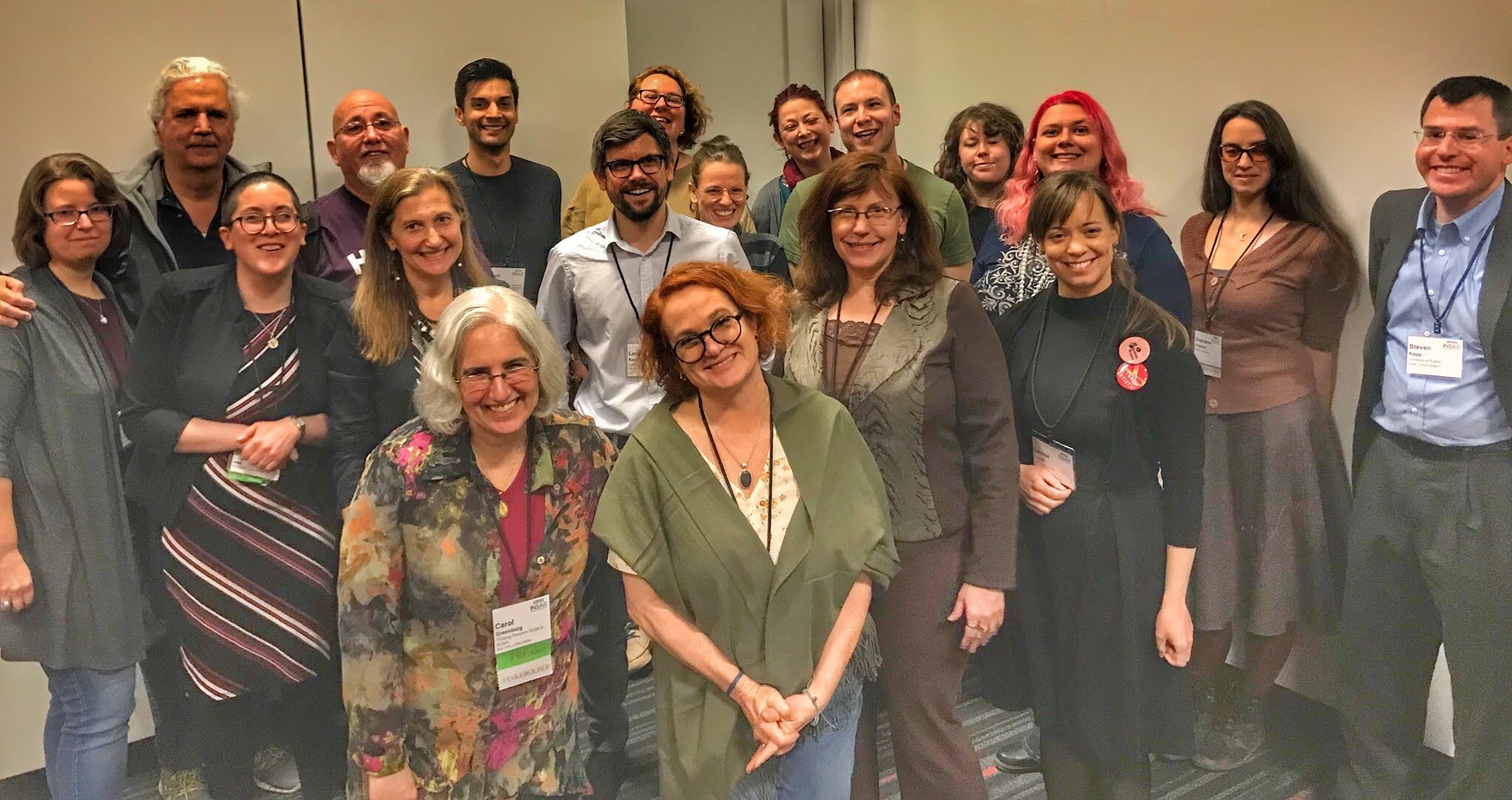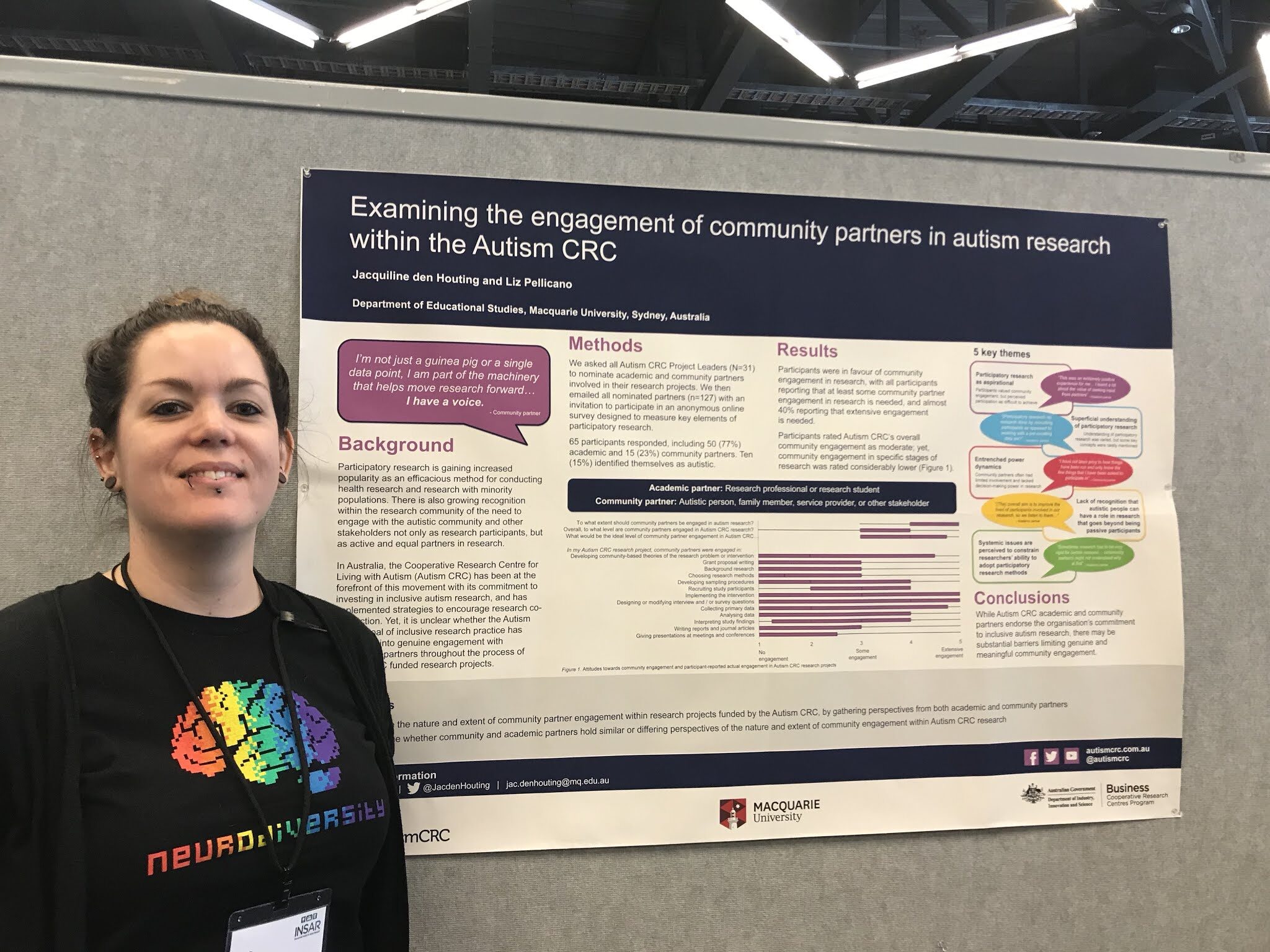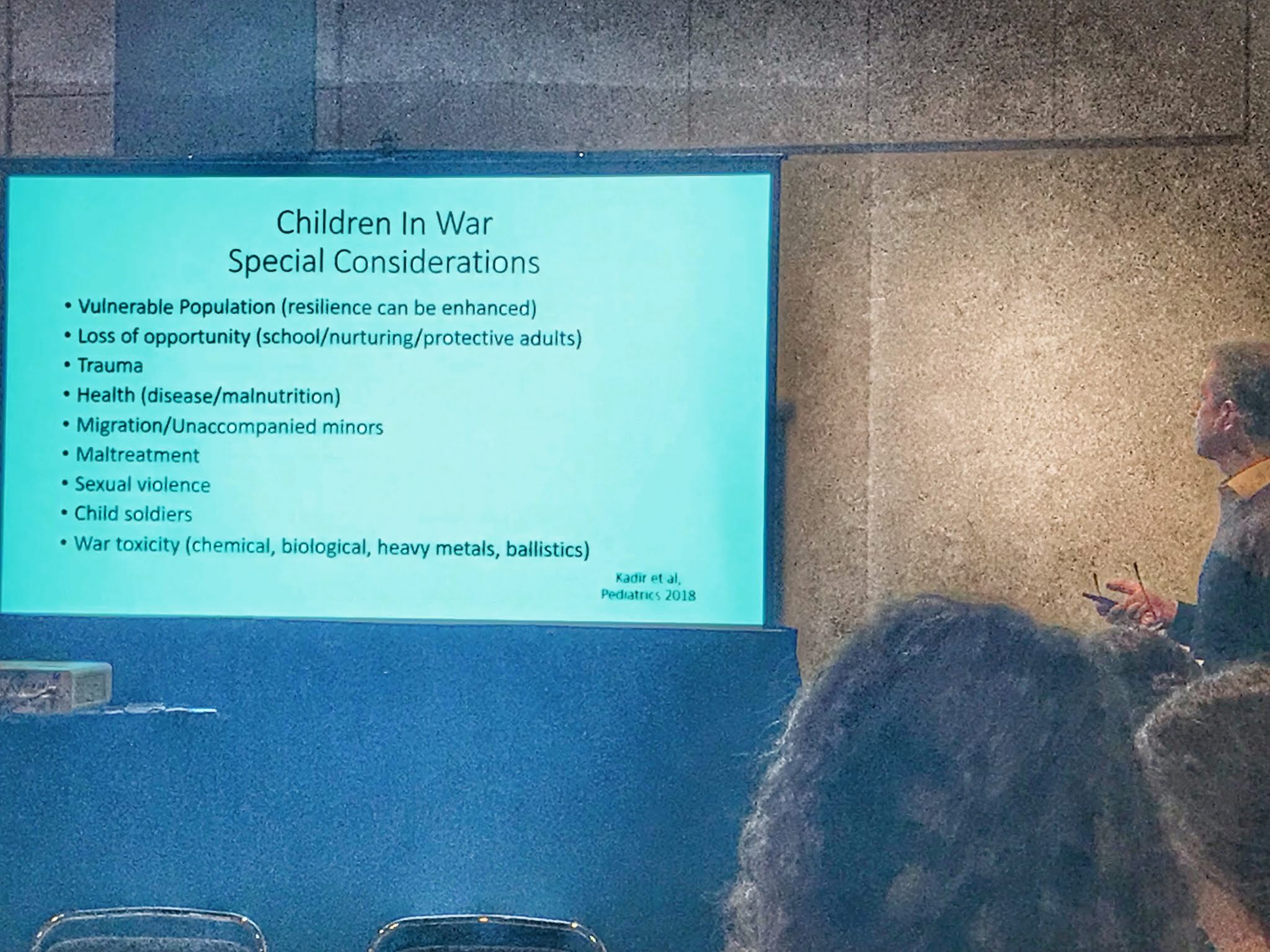Ehlers-Dahlos syndromes are disorders that affect connective tissues. They are both under-researched, and common co-occurring conditions in autistic people.
Tag: INSAR 2019
Dr. Rachel Moseley and Carol Greenburg [image: Photos of two smiling white women wearing glasses posing together. Left, Rachel Moseley has shoulder-length light brown hair. Right, Carol Greenburg’s hair is in a platinum bob.] Content note: This interview discusses self-injury and suicidal behavior. Oftentimes the most rewarding findings at INSAR, the annual meeting for the International Society for Autism Research, emerge during the pre-conference sessions. We went to the 2019 pre-conference on autism and mental health and were impressed by Dr. Rachel Moseley’s presentation on self-injury in autistic people without intellectual disability—and are grateful that Dr. Moseley was able to make time to talk with TPGA editors Carol Greenburg and Shannon Rosa about her research. Shannon Rosa: Dr. Moseley, can you first tell us a little bit about yourself, and your background and affiliations? Dr. Moseley: I’m a researcher at Bournemouth University. I did all my studying and my PhD…
Dr. Ruth Ann Luna and Shannon Rosa. Photo © TPGA [image: A Latina woman with long dark brown hair, and a white woman with chin-length fluffy red hair and glasses, smiling and posing together.] Our editors Carol Greenburg and Shannon Rosa spoke with Dr. Ruth Ann Luna about her research on autistic kids and their incredibly diverse gut microbiomes during INSAR 2019, How her research is not about “special diets for autism,” how GI issues are co-occurring conditions and not a core trait of autism, how there’s no one universal single bacteria that is associated with autism, how GI profiles are ofter family- rather than neurotype-specific, and how this research may translate into real world supports for autistic people. —- Shannon Rosa: Thank you so much for being here. Can you tell us a little bit about your background and what brought you into this area of autism and gut microbiome research?…
Dr. Catherine Crompton is doing ground-breaking research on autistic social dynamics and communication, so we were thrilled to interview Dr. Crompton about her work on Information Transfer between Autistic and Neurotypical People during INSAR 2019. We were fascinated (and gratified) to learn about her findings that when there are communication disconnects between the two groups, it tends to be a mutual hiccup rather than an autistic-specific problem. Shannon Rosa of Thinking Person’s Guide to Autism (TPGA): I’m speaking with Dr. Catherine Crompton from the University of Edinburgh. Catherine is working on a project that examines whether performance on cultural transmission tasks varies, depending on the diagnostic status of the social partner, which basically, if you want to summarize that in layman’s terms? Dr. Crompton: It means that we’re looking at how autistic people interact with other people, whether that is different, depending on whether the person they’re interacting with is also…
AutINSAR is a conversation between autistic people and/or autism researchers about needed autism research directions, priorities, oversights, course corrections, and goals.
Shannon Rosa Senior Editor The TPGA team attends INSAR, the annual meeting of the International Society for Autism Research, annually and has done so for eight years. We participate as journalists covering important autism research for our community, and also from our combined personal investments as parents of high-support autistic teens, autistic self-advocates, and autism professionals. I found INSAR 2019 to be the most progressive annual INSAR meeting since I first started attending in 2011, going by TPGA’s priorities of spotlighting research addressing the health and well being of existing autistic people, centering improved autistic quality of life as an optimal outcome, and increasing and acknowledging participation of autistic people themselves. I also appreciate seeing an increasing emphasis on autistic people and their families’ day-to-day under-recognized concerns, including co-occurring conditions like GI issues and sleep disturbances, practical considerations of transitions to adulthood, suicidality and other mental health matters, physical activity,…
Today’s INSAR 2019 Special Interest Group (SIG) on Gender, Sexuality, and Romantic Relationships was led by Laura Graham Holmes and Jeroen Dewinter, and co-led by Anna van der Miesen. Essentially, relationships and sexuality are central to everyone’s health and well-being. But there isn’t enough useful research and materials available fo autistic people of all ages and abilities, their families, and healthcare professionals, and many have expressed the need for research and guidance. So that’s what the SIG leaders and the participants in this well-attended session talked about. Any errors or omissions in the highlights below are on us. SIG participants Sara L, Dori Z, Jac dH, and Christina N, in discussion [image: Four people of varying gender identities and neurotypes, talking at a conference table.] Last year’s Gender, Sexuality, and Romantic Relationships INSAR SIG was about determining the most important issues for the autistic community, in terms of gender and…
Yesterday we attended the INSAR 2019 panel Where Do We Go from Here? Learning How to Prevent Suicide in Partnership with Autistic People and Their Allies, led by Sarah Cassidy from Nottingham University who has been doing this for four years now. Here is what the speakers had to say. (Any errors or omissions are on us.) The most important panel of the #INSAR2019 conference, chaired by @Sarah_NottsUni who is leading innovative and potentially life-saving research to understand and help prevent suicide in autistic people. pic.twitter.com/oSoQetMQI5 — Alexandra Forshaw (@myautisticdance) May 3, 2019 More than 10K stakeholders worldwide have identified the top 10 priorities, with equal representation of #autistic people: What increased barriers do autistic people experience when seeking help which may put them at greater risk of dying by suicide? What are the risk and protective factors for suicide in autism across the lifespan? To what extent are autistic people…
Shannon Rosa Senior Editor [Note: This report is based on @thinkingautism live-tweeted coverage, and as such may contain errors or omissions.] Report from the INSAR 2019 Special Interest Group (SIG) Autism and Related Disorders in the Context of Humanitarian Emergencies. SIG summary: “UN figures estimate 48 million children are impacted by humanitarian emergencies, including armed conflict and natural disasters. Within this population, children with autism and developmental disorders are extremely vulnerable to poor short and long term outcomes. There is increased awareness of the vulnerability of these children but limited research based knowledge on how to best address their needs. We aim to launch a platform for communication and collaboration between autism researchers and key stake holders in the humanitarian setting to address this gap.” First up was Doctors without Borders and SIG leader Ramzi Nasir, a developmental pediatrician who worked in conflict zones. He asked: Can we use remote consultations…
What do autistic people need from autism research? What is current autism research doing right? How does research let autistic people and their families down, and why? And how can we convey these concerns to autism researchers? That is what #AutINSAR is all about: a conversation between autism researchers and autistic community members, both in person and on Twitter. We had fantastic conversations at IMFAR 2017 in San Francisco, and again at INSAR 2018 in Rotterdam, and are hoping for another fruitful discussion this year during INSAR 2019 in Montreal, Canada. AutINSAR will once again be a partnership between us and The Autistic Self Advocacy Network (ASAN), NOS Magazine, Autism Women and Nonbinary Network (AWN Network), AutChat, and We Are Like Your Child. We welcome new 2019 partners Flow Observatorium and Autistics 4 Autistics Ontario. #AutINSAR Partner Orgs: ASAN, AWN Network, NOS Magazine, TPGA, autchat, Flow Observatorium, and Autistic 4 Autistics…
